Bail loses meaning when its size makes release impossible, - round table
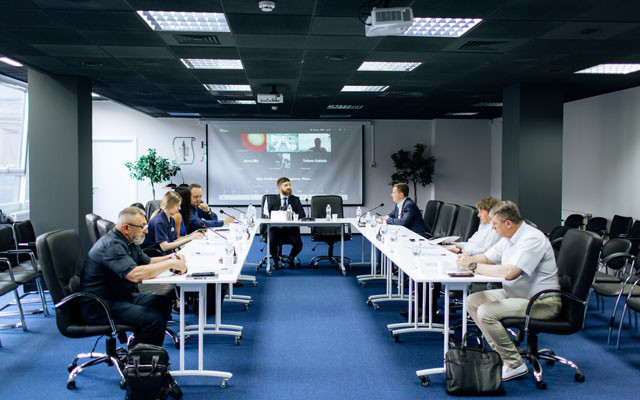

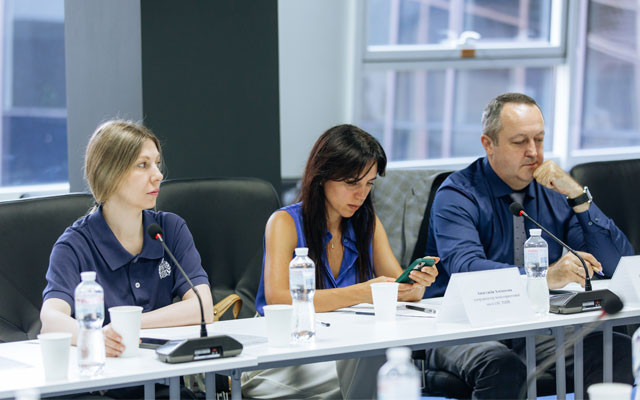
The UNBA Human Rights Committee held a round table to discuss the practice of bail. The focus was on cases where the amount of bail is so high that it effectively deprives a person of their liberty. Participants in the event, including advocates, judges, and representatives of human rights organizations, analyzed the reasons for this situation and outlined possible ways to overcome it.
Hidden detention?
«Bail, which should be a tool to ensure proper procedural conduct, is increasingly becoming a way to keep people behind bars», - said Bogdan Hlyadik, a member of the UNBA Committee on Human Rights. According to him, in practice, bail amounts are so high that they are impossible to pay, and the person remains in custody despite the existence of a formal alternative.
This is not only about high-profile cases involving millions of hryvnias, which are no longer an exception. «A bail of tens or hundreds of thousands of hryvnias can also be excessive — it all depends on the specific situation, so an individual approach by the court is key», - the advocate stressed.
To illustrate the scale of the problem, B. Hlyadik provided comparative statistics. Although it is generally accepted that the highest bail amounts are set by the High Anti-Corruption Court due to the specific nature of the cases, in reality, local courts are no less active. Thus, in March–May 2025, the three highest bail amounts imposed by the High Anti-Corruption Court were UAH 242.2 million, UAH 230 million, and UAH 112 million. Meanwhile, the Pechersky District Court of Kyiv imposed bail amounts of UAH 557 million, UAH 350 million, and UAH 342.2 million.
The advocate recalled the approach of the European Court of Human Rights, according to which bail should not be a hidden form of detention. If a person cannot be released due to excessive bail, this violates the presumption of innocence and turns a preventive measure into actual punishment.
Between standards and practice
IAC ISHR monitoring mission coordinator Anastasia Alekseeva noted that the bail mechanism must comply with international standards, in particular the practice of the ECHR and the provisions of the Convention for the Protection of Human Rights and Fundamental Freedoms. Under these conditions, bail can truly be an alternative to detention — a real, proportionate, and individualized one.
The speaker also drew attention to vague wording that is often used by the prosecution in motions and is included unchanged in court rulings. Such wording as «possible hidden assets» is not a justification in the sense of justice standards and should not serve as a basis for applying a preventive measure.
Assessing the prospects for legislative changes, A. Alekseeva expressed a cautious position. In her opinion, revising the rules will only complicate the regulatory framework. Instead, the key is high-quality law enforcement, with clear reasoning for court decisions and the establishment of all necessary characteristics.
In turn, advocate Dmytro Bondarchuk outlined another side of the problem—abuse during the control over the imposition of bail. According to him, there are cases when a person, having just been released after posting bail, immediately receives a new suspicion with a new, even larger amount. This creates a vicious circle in which bail loses its meaning as a guarantee of proper behavior.
The views on legislative changes also differ. According to the advocate, the current regulation contains overly broad evaluative constructs, in particular the concept of «exceptional cases», which allow for deviations from the established limits. This, in turn, opens the door to subjectivism.
The advocate also emphasized that excessive bail often becomes a means of pressure rather than a guarantee. If it cannot be paid, the prosecution may offer deals, exert psychological pressure, or demand testimony. In such conditions, bail becomes an instrument of pressure.
Criteria without benchmarks
Focusing on a person's financial status when determining the amount of bail loses its practical significance, according to Inna Bilous, the investigating judge of the High Anti-Corruption Court. She noted that in the vast majority of cases, the property has already been seized, and its sale, if possible, takes place on unfavorable terms. Therefore, in her opinion, it is advisable to consider a legislative alternative: to allow bail to be posted in the form of property, not just funds.
The judge also raised the issue of the purpose of the preventive measure: in «exceptional cases», bail should be significant for the person so that they fulfill their procedural obligations. As one possible solution, I. Bilous mentioned the introduction of electronic tagging. Currently, the technical infrastructure for this is extremely weak, but its development could reduce the courts' dependence on the size of bail.
The judge paid particular attention to the public perception of preventive measures. The use of bail or a reduction in its amount often causes public outrage, which creates the risk of pressure on the court. However, according to I. Bilous, the resonance of a case should not influence a judge — she personally cannot imagine a situation that would force her to adjust her decision under the influence of external reactions.
Nadiya Stefaniv, Supreme Court Grand Chamber Judge highlighted another gap: the law provides for the possibility of setting bail above the established limit in “exceptional cases,” but does not contain any criteria for what constitutes an exception. This leaves room for arbitrary interpretation, which should be narrowed through legislative clarification.
The judge also criticized the practice of determining bail by analogy with other criminal proceedings or suspects. According to her, there is no concept of procedural analogy in either legislation or practice: each decision must be based on the characteristics of the specific person and the circumstances of the case.
Limits exist — but do they work?
According to Andriy Ovsienko, representative of the Commissioner for the Right to Fair Trial and Representation in the Constitutional Court, the current version of the Criminal Procedure Code generally provides sufficient tools for the reasonable determination of bail. The code establishes both the severity of the crime charged and the criteria to be used by the court. Separately, it prohibits the imposition of bail that is known to be excessive.
In his opinion, the main problem is not the absence of rules, but their unscrupulous application. «Every law is designed to be implemented in good faith», - said A. Ovsienko.
At the same time, he drew attention to draft law No. 12439 of 24 January 2025, which proposes to amend the wording of part 5 of Article 182 of the CPC, in particular, to remove the word «if». In the opinion of the Commissioner, this wording would create excessive discretion for the investigating judge. Therefore, in its legal position, the Commissioner's Office proposed establishing clear criteria for determining exceptional cases that may justify deviating from the general approach.
Another issue raised by the speaker was the influence of public opinion on the perception of court decisions. Society often forms a biased attitude toward the suspect even before the verdict, especially if the case is actively covered in the media. In such circumstances, even a well-reasoned court decision to apply bail may appear unfair, as a concession to the suspect.
Not a guarantee, but a trap?
The discussion initiated by the UNBA Committee on Human Rights Protection highlighted one of the most acute problems of modern criminal proceedings — the imposition by courts of excessive bail, which in practice replaces detention.
Despite the existence of legislative restrictions and formal criteria, the lack of a clear definition of «exceptional cases», subjectivity in court decisions, and public pressure create room for abuse.
The participants agreed that the priority task is to ensure an individual approach, taking into account not only the financial situation of the person but also the feasibility of the decision. The focus should be not so much on changing the rules as on improving the quality of law enforcement in line with the standards of the Convention and the practice of the ECHR.
The need to improve the legal culture among lawyers and society as a whole was also emphasized. Only under this condition will preventive measures serve their purpose of ensuring fair justice, rather than becoming a mechanism of repression.
Popular news
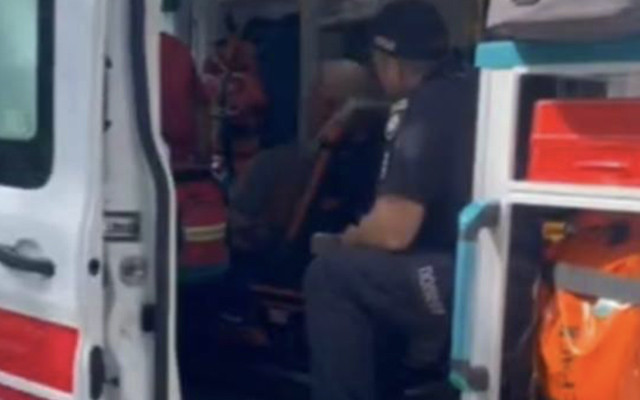
Advocacy
Another conflict with the TCC: an advocate's leg was broken and his client jumped out of a window
On June 19, at the premises of the military medical commission, where a bus from the Krasnograd Territorial Center for Recruitment and Social Support delivered several people, an incident occurred involving the use of physical force against an advocate.
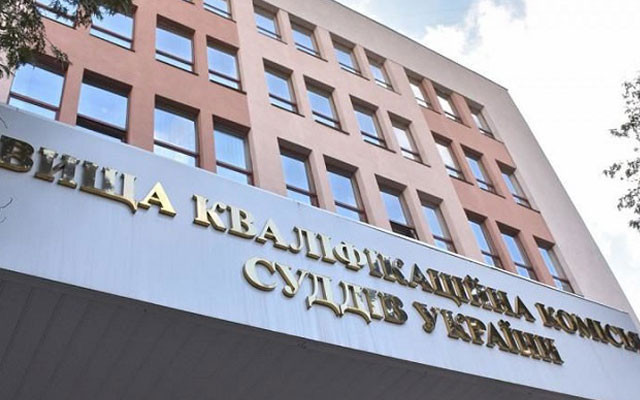
Advocacy
The Bar Council of Ukraine appealed to the High Council of Justice due to delays in forming the Competition Commission of t…
On June 13, 2025, Lidiya Izovitova, President of the Bar Council of Ukraine, addressed Grigory Usik, Head of the High Council of Justice, regarding the violation of the deadlines for forming a new composition of the Competition Commission for the selection of members of the High Qualification Commission of Judges of Ukraine.
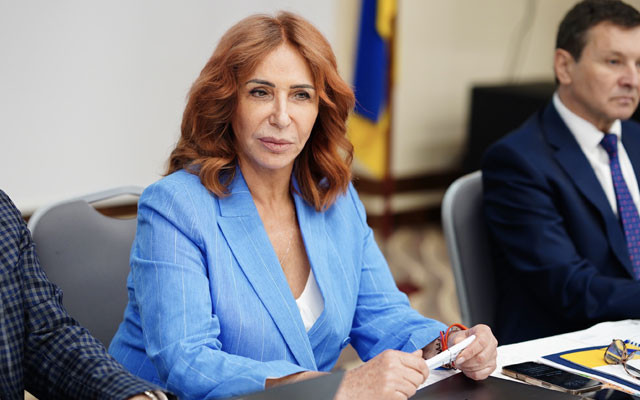
Advocacy
UNBA calls for compliance with Council of Europe standards for the legal profession
The recently approved roadmap for EU accession in terms of bar reform refers to non-existent European standards and was adopted in violation of international principles. Therefore, before talking about changes, it is necessary to compare the current model of the bar with the Council of Europe standards embodied in the Convention on the Protection of the Profession of Lawyer.
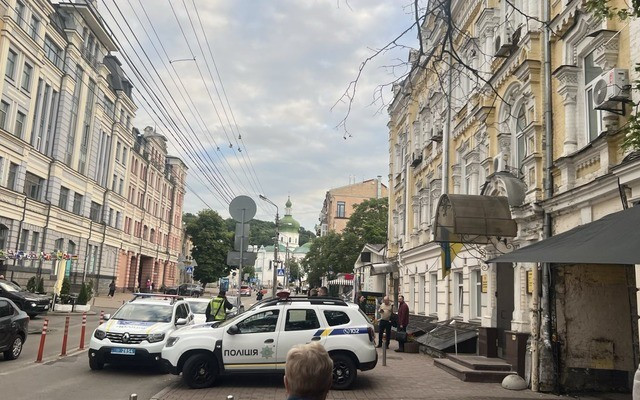
Advocacy
Mobilization of advocates in court: UNBA records another case of pressure
The Ukrainian advocacy has once again faced extrajudicial influence on advocates with the aim of obstructing the exercise of their legitimate powers related to the provision of professional legal assistance to clients.
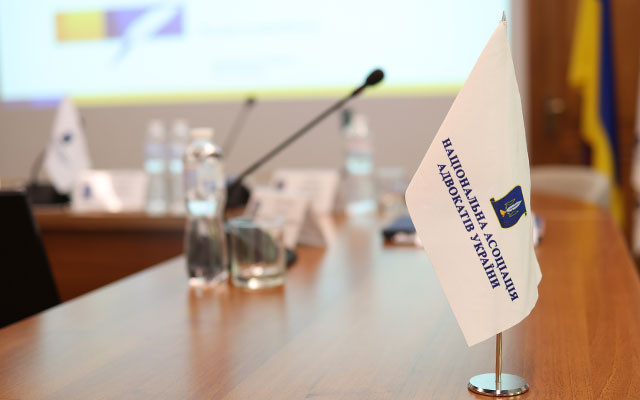
Advocacy
BCU demands verification of authenticity of SSU letter on «dangerous» advocacy
The Bar Council of Ukraine will appeal to the head of the Security Service of Ukraine, Vasyl Malyuk, regarding the verification of information about «negative trends in the legal profession» disseminated by some media outlets on behalf of the SSU.
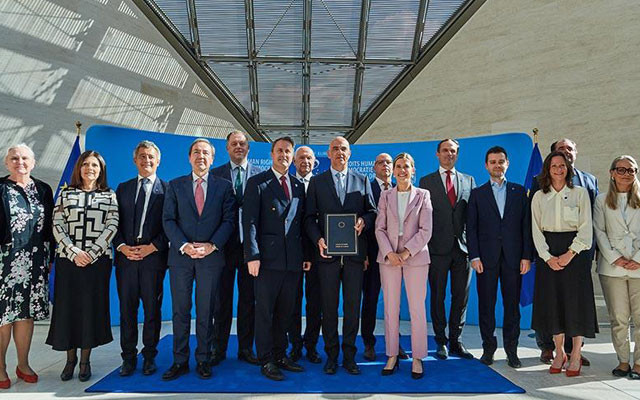
Advocacy
Council of Europe Convention on the Protection of the Profession of Advocate open for signature
Thirteen member states of the Council of Europe have signed the Convention on the Protection of the Profession of Advocate, which was adopted by the Committee of Ministers of the Council of Europe on March 12, 2025. Four more countries will do so today. Ukraine is not among them.
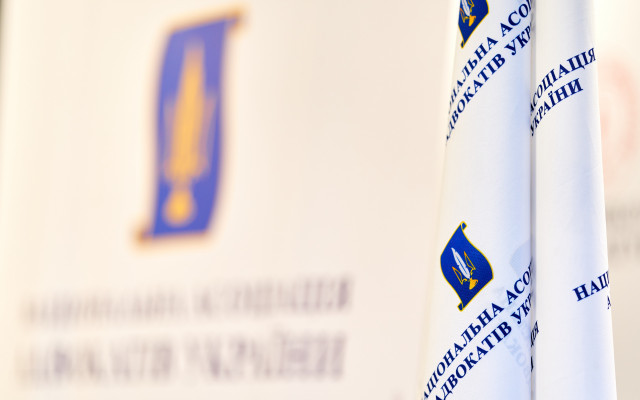
Advocacy
BCU initiates resolution of the issue of visits by advocates to convicted persons
Article 110 of the Criminal Enforcement Code guarantees convicted persons confidentiality of meetings with their advocate. One of the important elements is the possibility to communicate with an advocate in a room without a solid partition. In practice, this provision of the law is systematically violated.
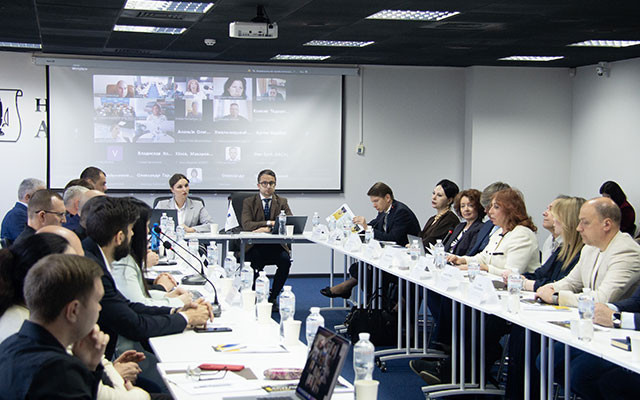
Advocacy
Advocates, academics, and experts examine problems in forensic examination (video)
The Ukrainian National Bar Association, in cooperation with leading scientific and research institutes of forensic expertise, organized a round table on expert support for legal practice.
Publications

Ihor Kolesnykov A BRIEF SUMMARY REGARDING THE APPLICATION OF THE ORDER ON EXTENDED CONFISCATION IN LATVIA REGARDING FINANCIAL ASSETS OF…

Valentyn Gvozdiy WORKING IN A WAR ZONE

Lydia Izovitova Formula of perfection

Sergiy Vylkov Our judicial system is so built that courts do not trust advocates

Iryna Vasylyk Advocacy in the proclamation of Independence of Ukraine

Oleksandr DULSKY When we cross the border of the Supreme Anti-Corruption Court, we get into another department of the National Anti-Corruption…

Vadym Krasnyk The UNBA will work, and all obstacles and restrictions are only temporary inconveniences

Lydia Izovitova Interview with Lydia Izovitova on the occasion of the 8th anniversary of the founding of UNBA: We are the voice of t…
